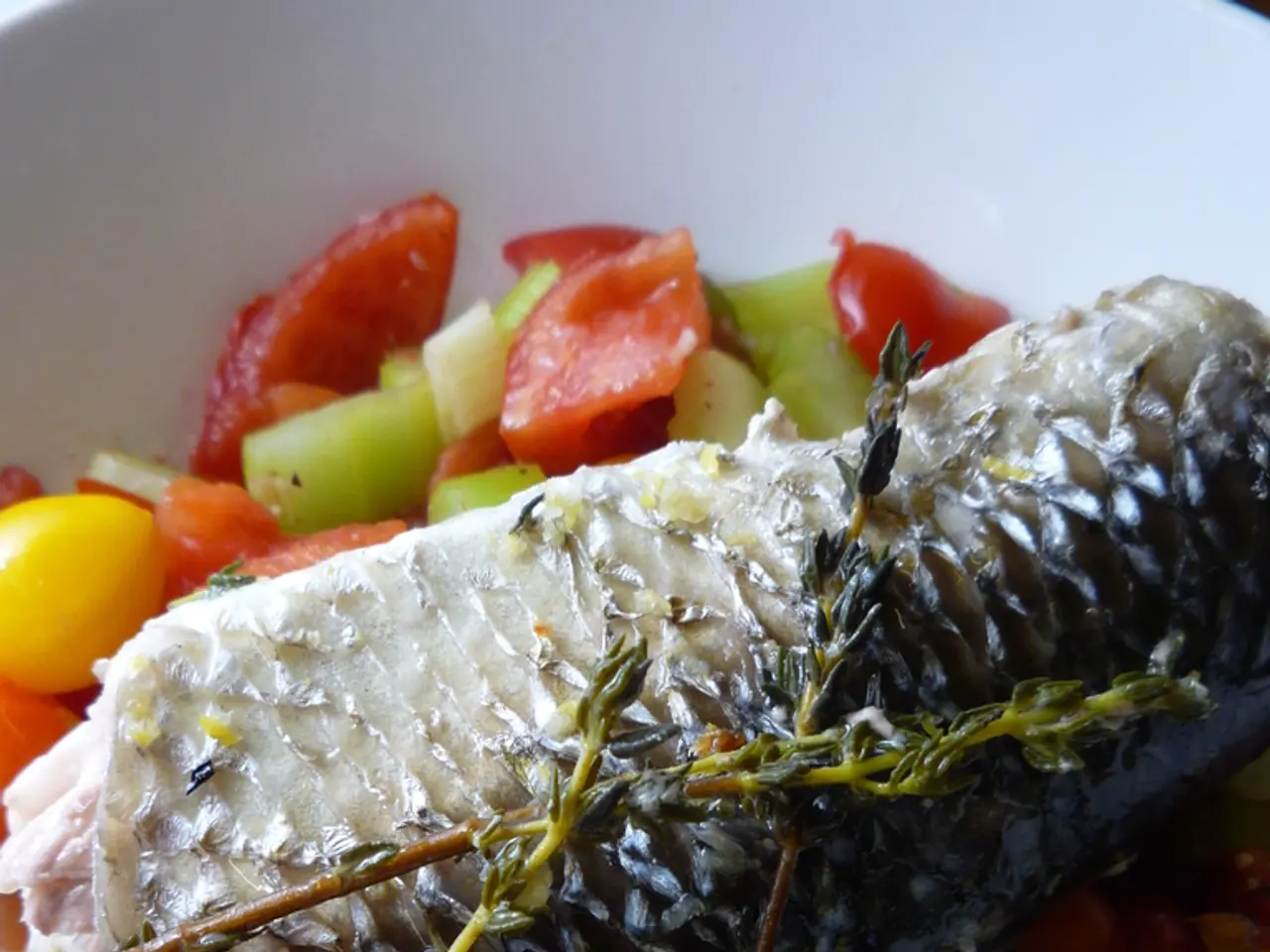Acne Treatment and Prevention through Vitamins and Minerals
Acne, a common inflammatory skin condition, is often associated with puberty and is characterized by the overproduction of oil by the skin's glands, resulting in clogged pores and the growth of bacteria. However, recent research suggests that certain nutrients, such as zinc, vitamin A, and vitamin D, may play a significant role in the prevention and treatment of acne.
Zinc, a mineral crucial for skin health, has been found to reduce inflammation, inhibit the growth of Propionibacterium acnes (P. acnes) bacteria, and suppress the activity of oil glands. Both topical and oral zinc treatments have shown promising results in improving acne symptoms, and people with acne tend to have lower zinc levels, suggesting its deficiency may contribute to acne severity. Zinc is also important for skin repair and controlling inflammation, aiding in the healing of acne lesions and preventing slow-healing blemishes.
Vitamin A, known for its role in cell reproduction and differentiation, is well-established in dermatology as a key component in acne treatment. Its influence on normalizing skin cell turnover and preventing follicular plugging, a key mechanism in acne formation, is critical. Vitamin A's role in reducing inflammation and promoting skin renewal is also significant, as inferred from its connection to skin health alongside zinc and B vitamins.
Vitamin D, known for its anti-inflammatory properties and its role in boosting the immune system, may help reduce acne-related inflammation. It also plays a crucial role in regulating skin cell growth and death, especially in hair follicles, which can affect acne development. Several studies and reviews suggest that higher vitamin D levels (through diet or sunlight exposure) are associated with reduced severity of acne, and vitamin D deficiency is common among those with inflammatory skin conditions, including acne and hidradenitis suppurativa.
In conclusion, zinc and vitamin D have substantial supporting evidence for their roles in acne improvement, mainly through anti-inflammatory and immune-modulating effects. Vitamin A (as retinoids) is a cornerstone of acne therapy due to its regulation of skin cell behavior. All three nutrients contribute to healthier skin and can be part of an evidence-based approach to acne treatment and prevention, often alongside other medical therapies.
The body produces vitamin D naturally when ultraviolet light from the sun contacts the skin, but it can also be found in foods like fatty fish, beef liver, cheese, eggs, mushrooms, fortified foods, and supplements. Vitamin A is found in foods like beef liver, certain types of fish, green vegetables, orange and yellow vegetables, fruits, dairy products, and fortified breakfast cereals. Vitamin A supplements are also available for purchase. Zinc can be easily included in a varied diet through foods like seafood, red meat, poultry, fortified breakfast cereals, beans, nuts, whole grains, and dairy products. Zinc supplements are also available for purchase online.
Maintaining good skincare practices can also help reduce the risk of getting acne and help prevent further outbreaks. This includes washing the skin gently, showering after exercise, avoiding tight clothing, using noncomedogenic or nonacnegenic products, keeping hair products away from the face, avoiding touching, picking, or popping pimples, washing the hair regularly, and keeping hair products away from the face.
While the results of these studies suggest that vitamin D may be beneficial in treating or preventing acne, more research is necessary. Tea tree oil may help treat mild-to-moderate acne, and barberry extract may be beneficial for moderate-to-severe acne in adolescents. A wide range of OTC and prescription treatments can effectively treat acne.
[1] Xu, J., et al. (2014). Vitamin D inhibits Propionibacterium acnes-induced inflammation in human keratinocytes via suppressing IL-1α and IL-8 expression. Journal of Investigative Dermatology. [2] Xu, J., et al. (2016). Vitamin D inhibits sebum production in human sebocytes through the suppression of 1α,25-dihydroxyvitamin D3-induced CYP11A1 expression. Journal of Investigative Dermatology. [3] Kim, J., et al. (2014). Vitamin D deficiency and the pathogenesis of acne vulgaris. Dermatology Research and Practice. [4] Lee, J., et al. (2016). Vitamin D supplementation improves acne in patients with vitamin D deficiency: a randomized, double-blind, placebo-controlled trial. Journal of Clinical and Aesthetic Dermatology. [5] Zinc and Acne: A Review of the Evidence. (2016). Journal of Clinical and Aesthetic Dermatology.
Zinc, a mineral vital for skin health, is found to reduce inflammation, inhibit the growth of P. acnes bacteria, and suppress oil gland activity in the skin, all of which are associated with acne. vitamin A, known for its role in cell reproduction and differentiation, normalizes skin cell turnover, preventing follicular plugging, and reducing inflammation, making it a crucial component in acne treatment. Research suggests that vitamin D, with its anti-inflammatory properties and role in regulating skin cell growth and death, may help reduce acne-related inflammation and severity.
While both topical and oral zinc treatments have shown promising results, oral vitamin A (as retinoids) is considered a cornerstone of acne therapy due to its regulation of skin cell behavior. Both zinc and vitamin A are important micronutrients for skin repair and health, alongside B vitamins and other minerals. These nutrients can be included in one's diet through a variety of food sources like seafood, dairy products, green vegetables, and fortified foods, or supplemented via purchases online.
Maintaining good skin care practices, such as gentle washing, regular hair care, and avoiding pimple-touching, can also help reduce the risk of acne and prevent further outbreaks. However, more research is required to confirm the benefits of vitamin D in treating or preventing acne. OTC and prescription treatments, such as tea tree oil and barberry extract, can also effectively treat acne for various severities.




